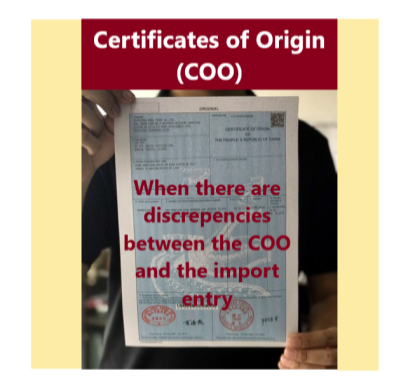The Australian Border Force (ABF) has issued Australian Customs Notice (ACN) 2023/43 providing guidance on Certificates of Origin (COO) and the reporting of information. They have changed some rules, significantly by allowing for the HS code on a COO be different to what has been reported on an import declaration.
They say that there are occasions where differences between the COO and the information reported to Customs via the Integrated Cargo System (ICS) may occur.
For example: differences between the Harmonized System (HS) Code used by the exporting party and the Tariff Classification used in the import declaration may occur.
Administrative arrangements in certain exporting Parties may raise concerns about the particular Origin Criteria provided on a COO. In some cases, the details on the COO could be different to that of commercial documentation, such as:
– Exporter name and details
– Importer name and details
– Description or quantities of the goods
Where there are multiple differences on a COO, importers and their Customs Broker are encouraged to seek a replacement COO in order to eliminate or reduce the number of differences. This should be done on the basis of self-assessment, including ensuring that the COO is certified by the exporting Parties’ issuing authority.
Minor differences on their own will not invalidate the COO. As long as there is other information on the COO that clearly demonstrate that the COO relates to the goods in question, the COO is certified by the exporting Parties issuing body or authority and the origin of the goods is not otherwise in question.
Where there are differences in the quantity on the COO compared to other commercial documentation, importers and their Customs Brokers should ensure that they can reasonably explain the difference, such as additional units being included in the shipment to make up a full container.
For the full notice from the ABF, go to this LINK. (PDF Format).
Where a short payment results from an incorrectly claimed preferential rate of customs duty, an importer may be protected from liability for an offence against the Customs Act if they make a voluntary disclosure through a written error notice, including that they relied on information on a COO at the time of importation.
A voluntary disclosure must disclose fully, truthfully and voluntarily, the details of the relevant import declaration and the nature of the errors. Read more about Voluntary Disclosure in our earlier article: Customs Update on Voluntary Disclosures .
As licensed Customs Brokers and International Freight Forwarders, Colless Young professionally handles customs clearance of all your import consignments by both sea cargo and airfreight. We provide a complete range of services including landed costings, quarantine treatments, trucking, warehousing and exporting. We are based in Brisbane and offer logistics facilities through all Australian ports and airports.

